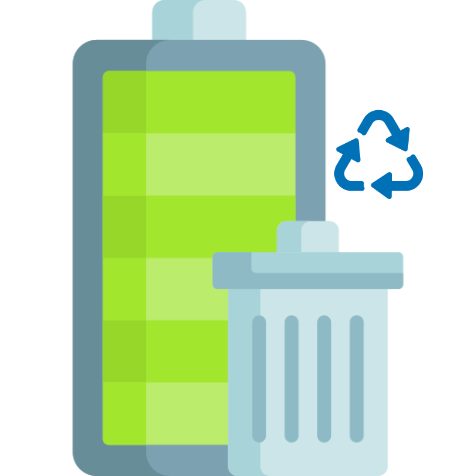Overview of EPR Authorization: Norms
India has grappled with the persistent issue of increasing plastic and electronic waste for years. The continuous disposal of such waste has led to irreversible damage to both the ecological system and human life. To address this urgent concern, the Government of India, in collaboration with MoEF & CC, unveiled the EPR concept under the E-Waste (Management & Handling) Rules, 2011. EPR is abbreviated for Extended Producer Responsibility.
As per EPR, the producers need to address various undertakings such as reducing waste generation at source, promoting the production of safer products, and advocating the tangible recycling and provisioning of e-waste. In short, they need to ensure end-to-end waste management.
Let’s dig into the legalities of EPR Authorization, and explore the obligations it imposes on producers and importers.
What is EPR Authorization?
Plastic Waste Management Rules, 2016 entails norms concerning the EPR Authorization, which compels notified entities to properly recycle or dispose of e-waste as required. To ensure comprehensive waste management, the authority introduced the notion of Extended Producer Responsibility, which extends the liability of producers toward environmental sustainability. Generally, EPR authorization consists of three fundamental categories:
Import Authorization
This category grants legal approval for the importation of electronic goods, ensuring that the licensee deliberately deals with post-consumer e-waste as per regulations.
Manufacturing Authorization
Manufacturers are required to secure this authorization to produce electronic items. It obligates them to ensure effective provisioning of the e-waste generated during manufacturing processes.
Wholesale Authorization
As the name suggests, this approval is mandatory for wholesalers dealing in electronic items. It obligates them to aptly manage the post-consumer e-waste, ensuring an optimal waste management system. Manufacturing authorization, in particular, is challenging to obtain due to stringent norms and the costly setup and infrastructure it demands.
Waste collection norms
Waste Collection Target under E-Waste (Management & Handling) Rules, 2016
E-Waste (Management) Rules, 2016 was enacted by the GOI as a replacement for the E-Waste (Management & Handling) Rules, 2011. It is more comprehensive in nature and provides for better environmental sustainability, thanks to the inclusion of a tangible approach. These rules aim to harmonize e-waste handling and disposal.
The new legislation covers the entire lifecycle of wastes and entities involved therein, including production units, collection centers, dismantling units, recycling facilities, and e-waste processing units discussed in Schedule – I of these Rules.
The E-Waste (Management) Rules, 2016 unveils the target-based approach for waste collection under EPR. It requires notified entities to collect e-waste as per the pre-determined target, which increases annually.
For the first two years, the target would be 30% of the overall waste generated, followed by 40% for the 3rd and 4th years, and 50% for the fifth and sixth years. The target will soar up to 70 percent after 7th year and stay consistent.
These rules empower the Central Pollution Control Board (CPCB) to effectively oversee the entire waste management cycle and provide directions whenever necessary to EPR authorization holders.
Untapped Pros of Securing EPR Registration
- to a clear framework on how to proceed with waste accumulation and channelization.
- High possibility of ensuring effective waste management provided the required targets are within reach.
- Improved reputation and goodwill in the market.
- Exposure to new markets.
Guide to Securing EPR Authorization
Every manufacturer seeking EPR approval should submit an application in Form-1, as specified in the E-Waste (M) Rules, 2016. Ensure that the completed application, along with the mandatory paperwork mentioned below, is sent to the Member Secretary of the Central Pollution Control Board.
Key Documentation for EPR authorization
- Copies of agreements with collection centers, dealers, recyclers, PROs (if applicable), and TSDF (in the case of CEEW5).
- Details regarding electronic items, including model and batch numbers, sold in the market over the past ten years.
- EPR plan reflecting details regarding collection methods, waste channelization, website info, etc.
- Proof of the producer's/importer's address.
- Reduction of Hazardous Substances (RoHS) approval, if applicable.
- BIS registration, if applicable.
- Business certification granted by the Directorate of Industries or Local Body, or DGFT.
- Declaration showing adherence to EN50581.
- Legal consent for product sales.
- Budget for waste accumulation and channelization schemes.
- Self-declaration showing that norms under RoHS have been met.
- Overall generation of WEEE.
- Copy of GST certification.
- Copies relating to certificates/documents.
- Details regarding proposed awareness programs.
Post-Registration Obligations for EPR Authorization Holders
The E-Waste (Management) Rules, 2016 seeks notified entities to abide by the following conditions:
- Formulate a pragmatic EPR plan and adhere to the underlying targets.
- Document e-waste channelization as per the EPR plan, via Form 2.
- Use Form 3 for annual returns filing on or before June 30th following the fiscal year.
- Maintain RoHS documents without fail.
- Obtain prior permission via Enclosure A from the authority concerned before rolling out new products.
- Ensure that every product brochure boasts RoHS information.
Why Adviso?
Experience the Ease of Compliance with Adviso – Your Trusted Licensing Partner
Starting a business journey can become overwhelming if you lack proficiency in ensuring adherence to compliance. Getting an operational license is not just mandatory, it shows that you are not willing to take chances when it comes to ensuring compliance. However, dealing with the same can be taxing. That’s where Adviso steps in!
Expertise and Experience:Adviso brings a wealth of experience and expertise in navigating the complicated landscape of licensing and regulatory compliance. Our professional understands the complications of EPR approval, ensuring your application is handled with accuracy and efficiency.
Tailored Solutions: We are aware that every business is unique. Adviso renders bespoke solutions tailored to your requirements. Our approach ensures that your application is a mere formality but a proactive step toward seamless waste management adhering to your business goals./p>
Proven Track Record: Adviso has a proven track record of securing mandatory approvals in no time. Our hundreds of satisfied clients serve as a testament to our unwavering and unmatched commitment to reliability and excellence.
FAQs
EPR approval mandates apt disposal or recycling of post-consumer e-waste as per the Plastic Waste Management Rules, 2016.




.png)






